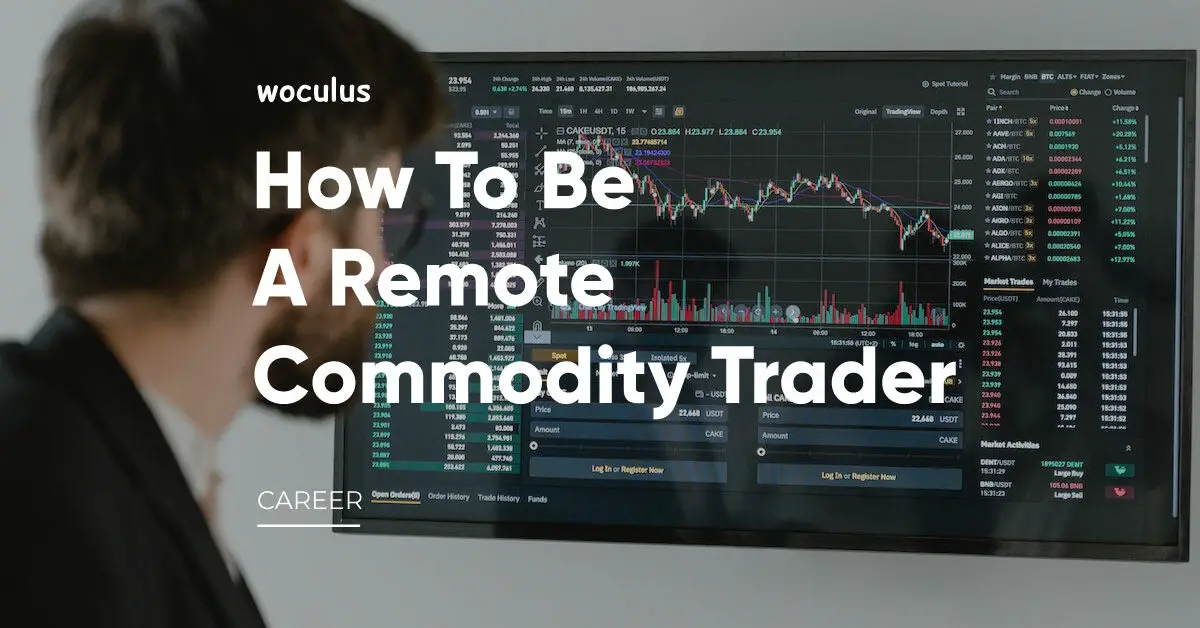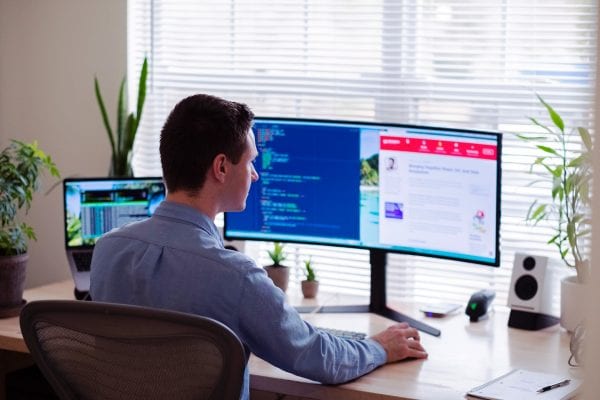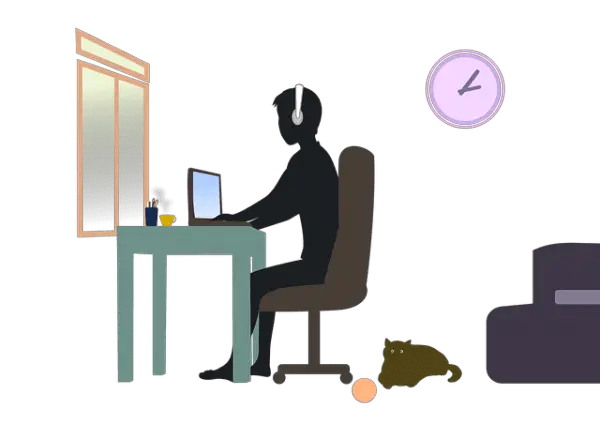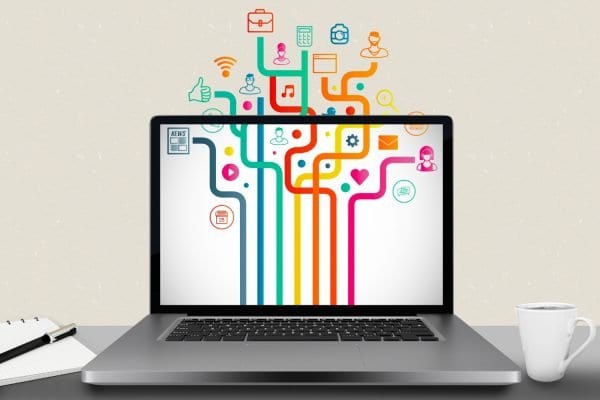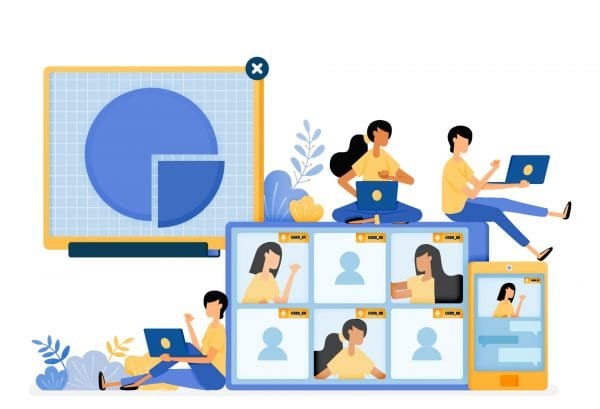Becoming a successful remote commodity trader requires specialized knowledge, strategic thinking, and practical communication skills. As with any career path, developing the necessary skills and building a solid network of industry contacts takes time and effort. However, anyone can succeed as a remote commodity trader with the right mindset and approach.
This article will explore the ins and outs of becoming a successful remote commodity trader. From the skills you’ll need to develop to the tools and technologies you’ll need to master to stay ahead of the competition, we got you covered. Whether you’re a seasoned trader looking to transition to remote work or a newcomer to the industry, we’ve got you covered. So, without further ado, let’s dive in and discover what it takes to be a successful remote commodity trader in today’s fast-paced, ever-evolving marketplace.
Who is Remote Commodity Trader
A remote commodity trader is a professional who buys and sells commodities, such as agricultural products, energy, metals, and other raw materials, from a remote location, typically using electronic trading platforms and other online tools. Unlike traditional commodity traders who work on the trading floor of an exchange, remote commodity traders can work from anywhere with a reliable internet connection.
Remote commodity traders are typically employed by trading firms or investment banks specializing in commodities trading. They use their knowledge of market conditions, supply and demand dynamics, and price trends to identify profitable trading opportunities and make trades for their clients or their own company.
To be successful as a remote commodity trader, one needs to have a deep understanding of the commodity markets, strong analytical skills, and the ability to make quick decisions based on market data and news. Strong communication skills and working independently are essential in a remote trading environment.
How To Become A QA Tester With No Experience: Complete Guide
How to Get Started as A Commodity Trader
1. Gain Relevant Education and Experience
To become a remote commodity trader, it’s essential to have a strong foundation in finance, economics, or business. Many traders have a bachelor’s or master’s degree in one of these fields, which provides a solid understanding of financial concepts, market analysis, and trading strategies.
In addition to having a formal degree, gaining practical experience in trading, finance, or a related field can be beneficial. This could involve working as a financial analyst, risk manager, or trader at a financial institution, trading firm, or commodities brokerage. Such experience helps traders develop skills in market analysis, risk management, and trade execution, which are all essential for successful commodity trading.
2. Determine Your Area of Specialization
Commodity trading encompasses various products, from agricultural commodities like wheat and corn to precious metals like gold and silver. Choosing a specialty and becoming an expert in that area is essential. When selecting a specialty, it’s essential to consider factors such as the supply and demand dynamics of the commodity, price volatility, geopolitical risks, and environmental factors.
For example, a trader specializing in agricultural commodities like soybeans may need to stay updated on weather patterns, crop yields, and government policies affecting production and consumption.
Meanwhile, a trader focusing on precious metals like gold may need to monitor global economic indicators, central bank policies, and geopolitical tensions impacting the demand for safe-haven assets.
It is also essential for you to maintain a broad understanding of the commodity markets as a whole so that you understand the whole concept.
3. Build a Network
Many professional organizations focus on the commodity markets, such as the National Futures Association (NFA) in the US, the London Metal Exchange (LME), and the Commodity Markets Council (CMC). These organizations offer opportunities for networking, access to industry events, and education and training. In addition, industry events such as conferences, trade shows, and workshops are excellent ways to meet other traders, industry experts, and potential clients. Events like these provide opportunities to learn about new trading strategies and market trends and meet other traders in your area of specialization.
Furthermore, social media platforms like LinkedIn and Twitter provide excellent opportunities to connect with other traders, industry experts, and potential clients. By sharing your thoughts and insights on market trends, you can establish yourself as a thought leader and build a following of people interested in your work.
4. Obtain the Appropriate Licenses
Some countries might require you to get licensed before you can start trading. Licensing requirements vary by region, and you should research the specific regulations in your area. Generally, a license may be required to trade certain commodities, such as futures or options contracts, or work for a commodities brokerage firm.
In the United States, for example, traders who handle customer accounts or execute trades must register with the National Futures Association (NFA) and pass a series of proficiency exams. The NFA also requires individuals who work for commodity brokerage firms to register and pass the appropriate exams. In the European Union, traders may need to obtain a license from the relevant regulatory authority, such as the UK Financial Conduct Authority (FCA) or the Autorité des marchés Financiers (AMF) in France.
Obtaining the appropriate licenses is essential for commodity traders, as it demonstrates their expertise and credibility to potential clients and trading partners. It also ensures that traders understand the regulations and ethical standards that govern their work, which is vital for maintaining the integrity of the commodity markets.
5. Find a Brokerage
A remote commodity trader typically works through a brokerage firm that provides access to trading platforms and services like market research and analysis. As a trader, you should consider this before selecting a brokerage firm.
- Reputation: The reputation of a brokerage is a critical factor to consider. Traders should look for a well-established firm with a proven track record of success and a reputation for integrity and transparency.
- Fees and Commissions: Commodity trading fees and commissions vary widely between brokerages. Traders should compare brokerage fees and commissions to ensure they are getting competitive rates.
- Trading Platforms: A brokerage should offer a user-friendly platform allowing traders to execute trades quickly and efficiently. The platform should provide access to real-time market data, news, and analysis.
- Customer Support: A brokerage should offer strong customer support, including access to knowledgeable representatives who can help traders with questions or issues.
- Regulatory Compliance: Traders should ensure that the brokerage is appropriately licensed and regulated by the relevant authorities in their region.
- Range of Markets: Traders should also consider the range of markets a brokerage offers. The more markets a brokerage offers, the more trading opportunities are available to the trader.
6. Start Trading
With the necessary education, experience, licenses, and network, remote commodity traders can begin buying and selling commodities from their home office. Here are some things you need to consider.
- Trading Plan: Traders should start by executing their trading plan. This plan should outline the trader’s approach to buying and selling commodities, including analyzing market trends, managing risk, and executing trades.
- Market Research: Traders should stay current on market trends, news, and analysis to identify potential trading opportunities. This may involve monitoring supply and demand dynamics, geopolitical risks, and other factors impacting commodity prices.
- Trade Execution: Traders should execute trades based on their trading plan and market analysis. This may involve placing limit or stop-loss orders, managing margin requirements, and adjusting positions as market conditions change.
- Risk Management: Managing risk is crucial for successful commodity trading. Traders should follow their risk management plan and monitor their exposure to potential losses.
- Record Keeping: Traders should keep detailed records of their trades, including the entry and exit points, the size of the position, and the outcome of the trade. This can help traders evaluate their performance and identify areas for improvement.
- Continued Learning: Commodity markets are constantly evolving, and traders must stay up-to-date on new developments, trading strategies, and risk management techniques. Traders should continue learning and improving their skills to achieve long-term market success.
How to Become a Remote Performance Analyst: Comprehensive Guide
Tools of A Remote Commodity Trader
As a remote commodity trader, some of the essential tools you will need include:
- Computer: A high-performance computer with a fast internet connection is essential for a remote commodity trader. It is crucial to have a reliable computer that can handle a load of trading software, data analysis tools, and multiple windows open simultaneously.
- Trading software: Trading software allows you to buy and sell commodities, analyze market trends, and manage your portfolio. Numerous trading software options are available, including E-Trade, TD Ameritrade, and Interactive Brokers.
- Data analysis tools: Remote commodity traders need access to real-time market data and analytics to make informed trading decisions. Some popular data analysis tools include Bloomberg Terminal, Reuters Eikon, and TradingView.
- Communication tools: Communication tools are critical for remote traders to stay in touch with colleagues and clients. Some of the most popular communication tools include email, chat, video conferencing software like Zoom and Skype, and team collaboration tools like Slack and Microsoft Teams.
- News sources: Keeping up-to-date with the latest news and market trends is essential for commodity traders. Popular news sources for commodity traders include Bloomberg, Reuters, CNBC, and the Wall Street Journal.
- Risk management tools: Commodity trading involves a significant amount of risk, and it is essential to have risk management tools in place to minimize losses. Some popular risk management tools include stop-loss orders, limit orders, and options contracts.
Combining these tools will make your work and trading more effective and successful as a remote commodity trader.
Skills Needed to Function as A Remote Commodity Trader
To function as a remote commodity trader, you must have a combination of technical, analytical, and interpersonal skills. Here are some of the critical skills you will need:
- Strong analytical skills: You will need to be able to analyze market trends, interpret financial reports, and understand the global commodity market.
- Technical skills: You should be proficient in using trading software, financial modeling, and data analysis tools.
- Practical communication skills: You must communicate effectively with clients, suppliers, and colleagues in different time zones and cultures.
- Self-motivation and discipline: Remote commodity traders often work independently, so you should be able to stay motivated, focused, and disciplined.
- Risk management: You should have a strong understanding of risk management and be able to make informed decisions to minimize risks and maximize profits.
- Negotiation skills: You should be able to negotiate contracts, prices, and terms with suppliers and clients.
- Attention to detail: Remote commodity traders must have a keen eye for detail to spot trends, anomalies, and potential risks.
- Adaptability: The global commodity market constantly changes, so you must adapt to new situations, market conditions, and technologies.
How To Become A Remote Information Security Analyst
Best Practices to Succeed As A Remote Commodity Trader
As a remote commodity trader, you must keep this in mind if you want to succeed in this career path. They involve you;
- Staying organized: As a remote commodity trader, you need to stay organized to keep track of various market updates, prices, and contracts. Use tools like spreadsheets, calendars, and trading software to stay on top of things.
- Building strong relationships: Building solid relationships with clients, suppliers, and other traders is essential in the commodity trading industry. Use video conferencing tools like Zoom, Skype, or Google Meet to keep in touch with your network.
- Staying updated: The commodity trading industry is constantly evolving, so it’s essential to stay updated on market trends, global events, and economic indicators. Use news and research sources to keep yourself informed.
- Communicating effectively: Communication is key in commodity trading. As a remote trader, communicate effectively with your team, clients, and suppliers. Use email, instant messaging, or video conferencing to keep in touch.
- Managing risk: Risk management is crucial in commodity trading. Develop a sound risk management strategy that includes stop-loss orders, hedging, and diversification.
- Being disciplined: Commodity trading requires discipline and patience. Stick to your trading plan, and don’t let emotions like greed or fear dictate your decisions.
- Focusing on customer service: Providing excellent customer service is crucial in commodity trading. Respond promptly to client inquiries and resolve any issues quickly and efficiently.
- Networking: Attend industry events, join industry associations, and participate in online forums to network with other traders and learn from their experiences.
Conclusion
Becoming a successful commodity trader requires knowledge, skills, and discipline. You should start by educating yourself on the markets, developing a trading strategy, and gaining experience through simulated trading and internships. Also, you must cultivate analytical skills, stay current on market news and trends, and develop a disciplined approach to risk management. Above all, traders should remain patient, resilient, and adaptable, recognizing that the commodities market can be volatile and subject to sudden changes.

